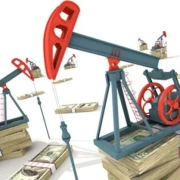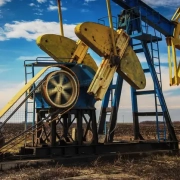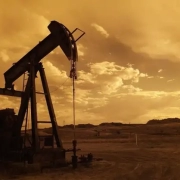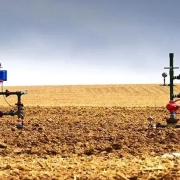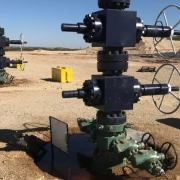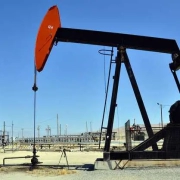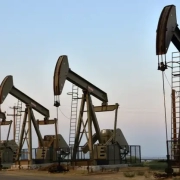Investing in Overriding Royalty Interests (ORRIs) has gained popularity as a way to diversify portfolios and generate passive income within the energy industry. ORRIs grant investors a share of the revenue generated from oil and gas production, without the financial responsibilities associated with drilling and operational costs. However, like any investment, ORRIs come with both risks and rewards. In this comprehensive guide, we will explore the world of ORRI investments, examining how they work, the advantages, potential pitfalls, the different types, strategies for success, and key considerations for potential investors. Understanding these nuances is crucial for making informed decisions when considering ORRI investments.
What Are Overriding Royalty Interests (ORRIs)?
Overriding Royalty Interests, commonly referred to as ORRIs, are a unique form of investment in the oil and gas industry. They provide investors with the right to a portion of the revenue generated from the production and sale of oil and gas. ORRIs are established through contractual agreements between investors and oil and gas operators.
How ORRIs Work
Investing in ORRIs means becoming a silent partner in oil and gas projects. Investors receive a predetermined percentage of the revenue generated from production, often based on the gross production value, which is calculated before operational expenses are deducted.
The specific terms of an ORRI agreement can vary; some may have fixed royalty rates, while others may include escalation clauses allowing for an increase in the royalty percentage as production grows. Understanding the details of the agreement is crucial before investing in ORRIs.
Advantages of ORRI Investments
Investing in ORRIs offers several compelling advantages:
Passive Income: ORRIs provide a source of passive income without requiring active involvement or day-to-day management.
Inflation Hedge: Royalty payments often increase with the production and sale of valuable commodities, making them an effective hedge against inflation.
Diversification: ORRIs offer diversification within a portfolio, as they are less correlated with traditional investments like stocks and bonds.
Limited Liability: Investors in ORRIs typically have no responsibility for operational costs or liabilities associated with drilling and exploration.
Potential Risks and Considerations
While ORRIs can be lucrative, there are important risks and considerations to keep in mind:
Market Volatility: The oil and gas industry can be subject to price fluctuations and market volatility, which can affect the value of royalty payments.
Geopolitical Factors: Global geopolitical events, such as supply disruptions or changes in government regulations, can impact the industry and your investments.
Resource Depletion: As reserves are depleted over time, royalty payments may decrease. Assessing the sustainability of the project is vital.
Contract Terms: The terms of ORRI agreements can vary, and some may be more favorable than others. It’s essential to review the contract carefully and seek legal advice if necessary.
Types of Overriding Royalty Interests
There are various types of ORRIs to consider, including:
Percentage ORRIs: Investors receive a set percentage of production revenue.
Cost-Free ORRIs: Investors are not responsible for operational costs, even if they exceed initial estimates.
Net ORRIs: Royalties are calculated based on net revenue, considering operational expenses.
Working Interest ORRIs: Investors take on a more active role in project management but share in both profits and losses.
The choice of ORRI type depends on your risk tolerance, financial goals, and desired level of involvement in the investment.
Strategies for Successful ORRI Investments
To maximize the potential of ORRI investments, consider the following strategies:
Thorough Research and Due Diligence: Before investing, extensively research the operator, the specific project, and the terms of the ORRI agreement.
Diversify: Spread your investments across various projects and operators to mitigate risk.
Regular Monitoring: Stay informed about market conditions and the performance of your investments to make timely decisions.
Consult Legal and Financial Professionals: Engage legal and financial professionals to ensure you fully understand the contract terms and potential legal implications.
Tax Implications
Understanding the tax implications of ORRIs is essential. Royalty income is generally subject to ordinary income tax rates, and the tax treatment may vary depending on your jurisdiction. Consult a tax advisor to develop a tax-efficient strategy for your ORRI investments.
Real-World Examples of ORRI Investments
To better understand the potential of ORRIs, consider these real-world examples:
Eagle Ford Shale: Investors in this Texas shale formation have earned substantial royalties due to the region’s prolific oil and gas production.
Bakken Formation: North Dakota’s Bakken Formation has been a hotspot for ORRI investments, offering significant returns to investors.
How to Begin Investing in Overriding Royalty Interests
If you’re interested in investing in ORRIs, follow these steps:
- Education: Learn about the oil and gas industry, royalty interests, and the specific terms of ORRI agreements.
- Identify Operators and Projects: Research and identify reputable operators and projects with strong potential.
- Consult Professionals: Seek advice from financial advisors, lawyers, and industry experts to guide your investment decisions.
- Negotiate Agreements: Engage in negotiations with operators to secure favorable terms and agree on a contract that suits your investment goals.
Investing in Overriding Royalty Interests presents a compelling opportunity for diversifying portfolios and generating passive income. However, it’s not without risks, and careful research, due diligence, and professional guidance are essential to make informed investment decisions.
Understanding the workings of ORRIs, assessing the advantages and risks, and implementing effective investment strategies can unlock the potential of this alternative investment option, allowing you to build a diversified and income-generating portfolio. Keep in mind that the oil and gas industry is dynamic, so staying informed and adaptable is key to successful ORRI investments.
If you have further questions related to the topic, feel free to reach out to us here.

